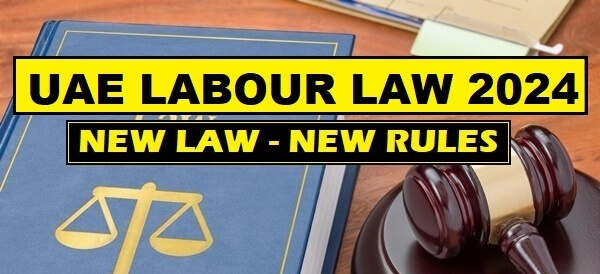أسئلة وأجوبة
What notice to follow while resigning if there is contradiction, the company contract or MOHRE contract?
I'm trying to resign from my company and found out there's incorrect information between my employment contract, my government contract, and the employee handbook.
I was under the impression of having a week's notice period but I'm being told it's 3 months and I'm losing a month's worth of salary.
On top of that, it's showing a non-compete clause for the same industry. I'm trying to change companies in the same industry, how much of an issue is that?
There are some conditions for the applicability of the non-compete as the labor law clarified a few conditions where you can rely on them if you would like to work for a competitor of your current employer.
To know whether you have such a chance or not, you need to consult with an expert lawyer.
You can book with us a consultation session at the lowest price.
We can assist you in reviewing all your legal documents such as your employment contract with MOHRE, your internal contract with your current employer.
We also request you to clarify your concerns and we assist to draft an opinion and guidance regarding the legal solutions and how you can get a way out to not lose any coming opportunities.
You can reach out to us through WhatsApp for assistance.
Hello,
Thank you for reaching out.
The discrepancies in your contracts and handbook—especially regarding your notice period, salary implications, and the non-compete clause—can significantly affect your resignation and future career.
These issues may limit your ability to move to another company in the same industry and could have financial implications.
I recommend scheduling a consultation with us so we can review your documents and provide tailored advice on how best to proceed.
You can book an appointment through our website or contact our office directly for further assistance.
Best regards,
Your employment contract registered in Mohre should be the primary document outlining the terms of your employment.
Non-compete clauses are enforceable in the UAE, but they must be reasonable in terms of duration, geographical scope, and the nature of the prohibited activity.
If your employer is enforcing a longer notice period than what is legally required, you may have grounds to dispute the loss of salary.
We will discuss the possibilities in detail. Kindly share your WhatsApp number to discuss further.
Dear questioenr
Non-compete clauses are enforceable in the UAE, but they must be reasonable in terms of duration, geographical scope, and the nature of the prohibited work. The clause must not unfairly restrict your ability to earn a living.
According to information from MOHRE, there are controls in place regarding the implementation of non compete clauses, including:
- The geographical scope of application.
- The term of the condition, which shall not exceed two years from the date of contract expiry.
- The nature of the work, so that it shall not cause serious harm to the legitimate interests of the employer, it shall not be diretly competing with your current employer or shall not take the customers to the new company.
If you need further clarifications kindly share your whatsapp number.

Hello,
Your government contract is a legally binding document. If it states a one-week notice, your employer cannot enforce three months. However, if it mentions three months, then it applies.
Salary deductions must follow Article 25 of the Labour Law, and you can dispute unlawful deductions with MOHRE.
Regarding the non-compete clause, Article 10 states it must be limited in time, place, and job scope. If it’s too broad, it may not be enforceable.
You must complete the notice period agreed upon with your employer, keeping in mind that the terms of the later contract clause will override earlier ones.
During this period, you are entitled to your full salary without any deductions.
If the employer insists on deducting your salary, do not accept it and file a complaint with the Ministry of Human Resources and Emiratisation (MOHRE).
Non-compete clauses are only enforceable if they are reasonable in scope, duration, and geography. Under UAE law, non-competes are limited to 24 months and must apply to specific roles or industries.
If the clause is too broad or unfairly restricts your ability to work, it may be unenforceable, and you can challenge it in court if necessary.
Discrepancies between your understanding of contractual obligations and what is stated in official documents can lead to significant implications regarding both financial loss and future employment opportunities due to non-compete clauses.
It is essential to thoroughly review all relevant documents, seek legal advice if necessary, and engage in open communication with your employer about these issues.
Since the notice period in your employment contract is three months, not one week as you might have thought, you are legally obligated to adhere to this period if you decide to resign.
Failure to adhere to the notice period could result in a full month's salary being deducted or even compensation being paid to the company for breach of contract.
As for the non-compete clause in the contract, this clause is often intended to prevent you from working with competing companies in the same sector for a certain period after you leave.
The risk is that violating this clause could lead to legal action against you by the company, such as demanding financial compensation or being barred from working in the same sector for a certain period.
If you are planning to move to a competing company, it is advisable to review this clause with a specialized attorney to assess its legal validity, especially if it includes a long period or a broad scope that could prevent you from working freely.
You may be able to negotiate with the company to reduce or remove this clause, or you may have the right to resign without consequence if the terms are unfair or ambiguous.
Dear Sir/Madam,
Thank you for sharing the details of your situation regarding your resignation and the discrepancies between your employment contract, government contract, and employee handbook.
Based on UAE labor laws and best practices, I would like to provide the following professional guidance:
1. Notice Period
The UAE labor law stipulates that the notice period for resignation must be a minimum of 30 days and can extend up to 90 days, depending on the terms agreed upon in your employment contract.
While you were under the impression of having a one-week notice period, this is not compliant with UAE labor law. The three-month notice period being enforced by your employer appears to fall within the legal maximum.
To clarify this matter:
- Review your signed employment contract, as this is the primary legal document governing your employment terms.
- If there is a discrepancy between your contract, government records, and employee handbook, the signed employment contract typically takes precedence under UAE labor law.
2. Loss of Salary
In cases where an employee does not serve the full notice period as stipulated in their employment contract, UAE labor law allows employers to deduct compensation equivalent to the salary for the unserved portion of the notice period.
This explains why you may be losing a month's worth of salary if you are unable to fulfill your contractual obligations during the notice period.
3. Non-Compete Clause
Non-compete clauses are legally enforceable in the UAE under certain conditions. For such clauses to be valid:
- The clause must specify clear restrictions regarding duration, geographical area, and business activities.
- The restrictions must be reasonable and limited to protecting the legitimate interests of your current employer.
- You must be at least 21 years old for the clause to apply.
If you are planning to join another company in the same industry, this clause could potentially restrict your ability to do so.
However, its enforceability depends on whether it meets these legal requirements and whether it is proportionate to your job role and responsibilities.
4. Recommendations
a) Review Employment Contract:
Carefully review your signed employment contract to confirm both the notice period and non-compete clause details.
Compare these terms with those in your government contract and employee handbook, as discrepancies may need clarification with your HR department.
b) Seek Legal Advice:
Consult with a qualified UAE labor law expert to assess:
- The enforceability of the non-compete clause in your specific case.
- Your options for negotiating a shorter notice period or resolving discrepancies in documentation.
c) Negotiate with Your Employer:
Discuss these matters professionally with your HR department or management team. Highlight any inconsistencies in the documentation and explore whether adjustments can be made regarding the notice period or non-compete clause.
d) Maintain Compliance:
Ensure that you adhere to UAE labor laws during this process to avoid potential legal or financial penalties.
Conclusion
While discrepancies in documentation may create confusion, it is essential to rely on your signed employment contract as the primary reference point.
Seeking legal advice will help ensure that you make informed decisions regarding both your resignation and future employment opportunities within the same industry.
Should you require further assistance or need help connecting with a legal professional specializing in UAE labor law, please feel free to reach out.
Yours sincerely,
ABDUL WAHIED








